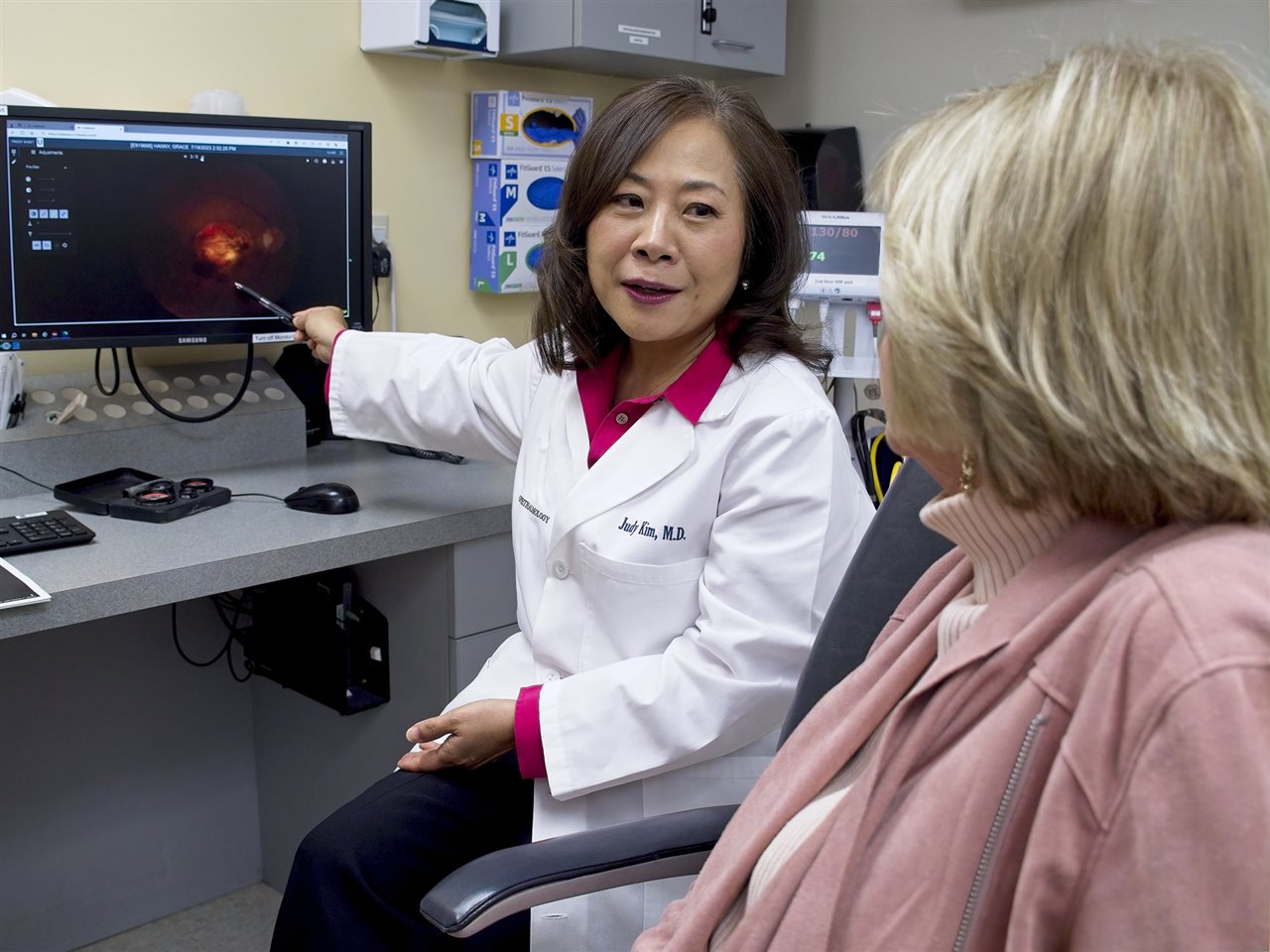(BPT) - If you have diabetes, you're intimately aware that building an experienced care team is key to protecting your health. From establishing care with a knowledgeable primary care physician to finding a trusted endocrinologist, many health care professionals make it possible to thrive while living with this disease. However, you may be missing an essential member of your care team: A retina specialist.
Because diabetes can lead to retinal damage, preserving your vision should be top of mind. Of the nearly 40 million Americans who have diabetes, approximately half will develop diabetic retinopathy, the leading cause of irreversible blindness in working-age Americans.
That said, vision loss isn't an inevitable condition. Early diagnosis and treatment can go a long way in preserving your sight and can greatly reduce the risk of vision loss. This National Diabetes Month, if you have diabetes, make it a priority to find and book an appointment with a retina specialist so you can see for a lifetime.
Why retina specialists are best equipped to preserve your vision
While there are many eye health providers, retina specialists have dedicated their careers to mastering the complexities of retinal disease. In addition to completing medical school, internship and ophthalmology residency, these medical doctors complete one to two years of additional fellowship training focused on diseases and surgery of the retina and vitreous.
In total, that's 10 years of extensive specialized training. That's why retina specialists are the most qualified experts to help diagnose and treat diabetic retinopathy before the condition becomes irreversible.
When to see a retina specialist
Diabetic retinopathy doesn't happen overnight. You may have the condition for a long time before you notice symptoms. However, you may notice the following symptoms in one or both eyes:
- Blurred vision
- Difficulty reading
- Spots or floaters in your vision
- A shadow across your field of vision
- Eye pressure
- Difficulty with color perception
Even if you're not currently experiencing symptoms of diabetic retinopathy, it's vital that you see a retina specialist. They can help monitor your vision, identify and diagnose vision problems early, and treat diabetic retinopathy in its earliest stages when treatment is most effective.

What you can do every day to protect your vision
Seeing a retina specialist is the best way to protect your vision from diabetic complications. However, there are daily steps you can take to protect your vision long term.
If you have diabetes, invest in your overall well-being and vision by:
- Getting regular dilated eye exams
- Controlling your blood sugar, blood pressure and cholesterol levels
- Maintaining a healthy weight
- Staying physically active
- Taking prescribed diabetes medications as directed
- Quitting smoking
- Reporting any vision changes immediately
See the difference a retina specialist can make in your vision health
You don't have to manage your diabetes-related vision problems alone. Find a retina specialist who can partner with you to preserve your vision now and for years to come.
To learn more about how you can maintain your retina health to preserve your vision, visit SeeforaLifetime.org. You can find a retina specialist in your area by visiting FindYourRetinaSpecialist.org.
